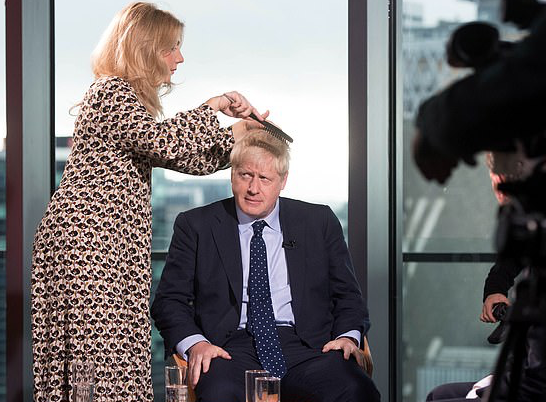Throughout this period of constitutional upheaval the courts have struck a delicate, but effective, balance on the Brexit cases. They have intervened, but never too much, allowing politics to properly dominate the stage, with the law used to confine the actors, preventing them from ranging too far from their script.
Yesterday’s decision by the Scottish Court of Session’s Outer House continued this trend, the judges refusing to issue an order mandating that the prime minister send the letter requesting the extension to the EU Commission, or assuming the responsibility for sending the request itself (in technical terms, anobile officium). Unlike in the first Cherry case, the Inner House should uphold this, refusing to step into the shoes of the executive, and allowing political events to run their course.
After the passing of the Benn Act, which prevents the UK from departing from the EU on a ‘no-deal’ basis, there have been murmurings of legal plots from within No. 10. Various rumours have been whispered to journalists as to how the government has discovered a legal loophole, a cunning plan that will allow them to fulfil the textual requirements of the act, whilst still leaving on a ‘no deal basis’. Most of these legal plots, unsurprisingly for a government that has displayed the intellectual acuity of a doormat, have been dead on arrival. There is no effective legal loophole in the act.
The government knows this. That Geoffrey Cox, the Attorney-General, has threatened to resign should Johnson refuse to send the extension request shows that at least part of the government’s senior circle has accepted the Act’s inevitability. Such knowledge does not, however, prevent the government from politicking as if they are not going to send the request. Johnson, in continually emphasising his intent to leave on the 31st, ‘do or die’, is not violating the Benn Act. Legally, there is nothing that precludes him from saying this. Politically, if he is determined to drag the dignity of his office into the mire, that is his prerogative.
The case before the Outer House, and now before the Inner House, fundamentally confuses the political sphere with the legal. Whereas the previous constitutional cases, Miller I and Cherry/Miller II, engaged the courts when the government had trespassed onto unlawful terrain, there has been no such trespass here. There has been no abrogation of a fundamental constitutional principle, no attempt to silence parliament or to defenestrate rights.
Instead, we have a government behaving in an unprecedented manner, in that no government, at least to my knowledge, has explicitly stated in the public sphere that it intends to break the law. Even given politicians’ tendency to lie, mislead and misdirect, this is a particularly egregious falsehood, especially when coupled with the extensive advertising campaign about being ‘ready for Brexit’ on October 31. Being an egregious falsehood, at least within the political sphere, is not, however, something that the courts can intrude upon. Instead, it is a matter for the electorate at the ballot box.
Should the courts become involved here, they can reasonably be accused of jumping the gun, of playing politics rather than law. The only turn of events which could have moved this debate from the political sphere to the legal would have been if the government had refused to accept the natural consequences of the Act before the court. If they had refused to acknowledge to the court that they were legally bound, that may have provided enough ammunition for the court to act. This did not happen. Unsurprisingly, even the government is reluctant to explicitly lie to the court. They learnt from their reluctance to give a statement in Cherry/Miller II, where the missing witness statement, explaining the prorogation, was core to the government losing its case.
That the courts should be involved in holding the executive to account but they should be wary of treading too far into the morass, departing from the relative clarity of law into the political thicket. For the court to make any order, especially a nobile officium here, would require the court to find that the government was intentionally lying to it, a step that should rest on more than mere supposition. There was no evidence offered which suggested that the government truly intends to break the law (other than its own propaganda- which changes with the wind). Mere expectation of law-breaking does not justify such an order, especially given the order would trespass upon an area of especial executive prerogative, foreign policy, and, as the Outer House found, because the ‘government accepts that in executing its political policy, it must comply with the 2019 Act’.
When the realms of politics and law collide, it can be difficult to ascertain if the courts are behaving legally, or if they are assuming a more political guise. As the response to the Cherry/Miller II has shown, even decisions that confine the executive to its box can be interpreted as judicial activism. One guide to the suitability of legal action is the availability of political remedies. The fewer the political remedies, the more likely legal ones must rise to compensate. In Miller I and Cherry/Miller II, political options were few and far between. Miller I raised the question as to whether the government had the necessary power to unilaterally take the UK out of the European Union, whilst in Miller II, Parliament had already been prorogued, and had chosen to prioritise the Benn Act ahead of reversing prorogation. In both cases, the courts’ failure to act would have prevented the executive from being held to account.
There is no such issue here. Parliament will be sitting when the relevant date arrives, and has the capacity to act to mitigate any violations. Further legislation extending responsibility to other actors is still possible, and the government could still be brought down, and a new prime minister installed. Any legal action should be confined to when the law has been broken – not when campaigners think it might be.







